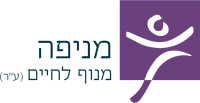Child and Parent Centers are a project of the Ministry of Welfare – a home-like setting for treatment with a holistic outlook which sees the child and parent as an integrated system. By providing guidance to parents and care for damaged families seeking support, the Centers offer a vital therapeutic space.
A core aspect of Menifa’s work is its holistic nature – the interweaving of education and therapy, within the context of family, community and school.
In operating Child and Parent Centers, this mission is manifested in the approach to improving functioning along multiple axes of engagement, while considering the needs of both parents and children. Menifa brings its full experience in holistic education and rehabilitative thinking. For the individual child, this involves education, working on social functioning, modeling and skills development. For the parent, this involves care, guidance and education, whether it is for the parent as a person, spouse or parent. And the family system is approached as a whole, with all the interpersonal relationship in the family in play, sibling, parental, etc. The process places attention and value on each family’s particular cultural heritage.
The centers are operated in partnership with the with the Office of Urban Social Services (Welfare) and are deployed throughout the country.
The centers provide a therapeutic response to 100-120 beneficiaries, parents and children
An example case: the work with one family, including a mother, a father, and their three children (ages 9,6 and 4). The father, who was born in the USSR, was released from prison two months ago, after four years in prison.
The family began their process with Menifa when only the mother and the children could come to the center. The concerns that brought them there were a daughter’s severe tantrums and the eldest son’s suffering from fear, constant clinginess to his mother, introversion and inability to express his feelings.
Many meetings, both individual and family, were dedicated to handling the daughter’s outbursts of anger, the son’s social problems and, more generally, to helping all the children learn to cope with their father’s absence. Progress is evident in the mother, who initially had trouble talking about her feelings and the feelings of her children (“They don’t know he’s in jail, so it doesn’t hurt them”, “I think he has friends – he’s fine”, etc.) And now, she sees the emotional needs of each of her children and does not repress them.
Two months ago, the father was released from prison and joined the treatment process. Both parents are very involved in the process, and make sure to come regularly for all types of meetings. The treatment now focuses on the many difficulties that arise with the return of the father – the adaptation of the children and the parents to the new situation with complex and overwhelming demands on the whole family.


